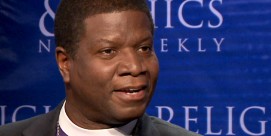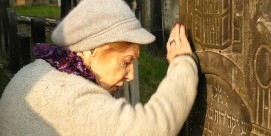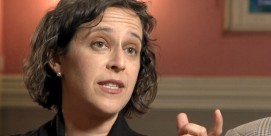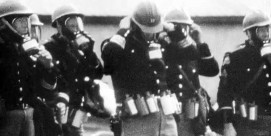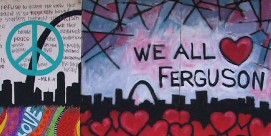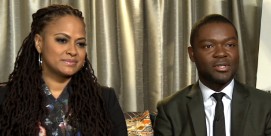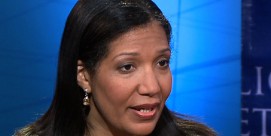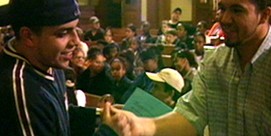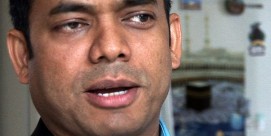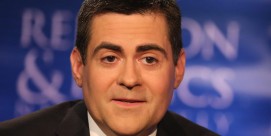Topic: Race
“It took many parts of very many communities to make peace in Baltimore,” says Eugene Sutton, Episcopal Bishop of Maryland. “Religious leaders from all over the city—Christian mainly, Muslim and Jewish leaders—got out on the streets and congregations and really proclaimed a message of hope and of nonviolence and peace. City officials did the same.” More
“Hatred doesn’t always have to be passed on from generation to generation,” says New York filmmaker Menachem Daum. “Perhaps no one is more qualified to set such an example than Poles and Jews.” More
“The story of the seder, the story of freedom and justice, is a universal story. It’s not too much of an exaggeration to say that just about everything we do stems from this story—this idea that we were slaves, and we were freed, and now it’s our responsibility to work for freedom for people all over the world,” says Rabbi Shira Stutman, director of Jewish programming at Historic Sixth & I Synagogue. More
“We were willing to be beaten for democracy,” says Rev. C.T. Vivian, recalling the freedom movement and voting rights marches from Selma to Montgomery in March 1965. It was, he says, “the beginning of the transformation of America.” More
Black and white religious leaders in Ferguson, Missouri, are trying to help their divided community heal. “Here is an opportunity, a living laboratory by which we try intentionally to work toward that beloved community that Dr. King invited us to,” … More
As the movie opens today (January 9) in theaters around the country amidst controversy over its portrayal of former president Lyndon Johnson, we speak with director Ava DuVernay and David Oyelowo, the actor who portrays Rev. Martin Luther King Jr., about what it means to them to tell the story of the historic 1965 civil rights march from Selma to Montgomery, Alabama. More
“We need to grow in understanding. We haven’t listened to the young people, churches included, and so when I say “listen” I really mean listen to the stories of the young people,” says Lisa Sharon Harper of the Christian social action group Sojourners, “because they are ones bearing the brunt of most of the crisis we’re experiencing.” More
When there was violent unrest in Boston, members of the clergy learned to work both with the police and with potentially violent youth. They achieved much-publicized changes, but they also may have claimed success too soon. More
Days after 9/11, Rais Bhuiyan was shot in the head by Mark Stroman in a hate crime targeted at Arabs. Bhuiyan survived the attack, and Stroman was sentenced to death, but Bhuiyan felt compelled to not let the story end there. “I need to forgive him in public and do something to save the life,” says Bhuiyan, “because if Mark Stroman was given the chance I had in my childhood, he would have become a different person. More
“I’m particularly concerned when I see white people and African-American people not having conversations with one another about what’s happening in Ferguson,” says Russell Moore, president of the Ethics and Religious Liberty Commission of the Southern Baptist Convention. “I think that needs to change in our own congregational life, when we have congregations where reconciliation is modeled within the pews of the church.” More

